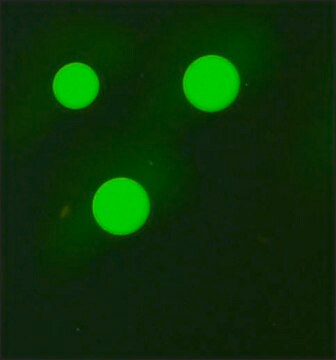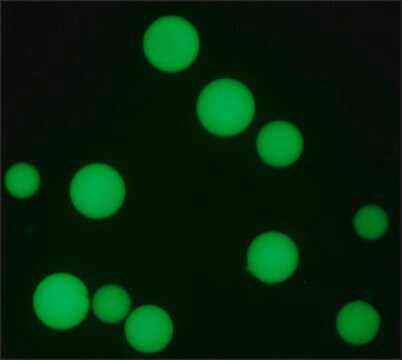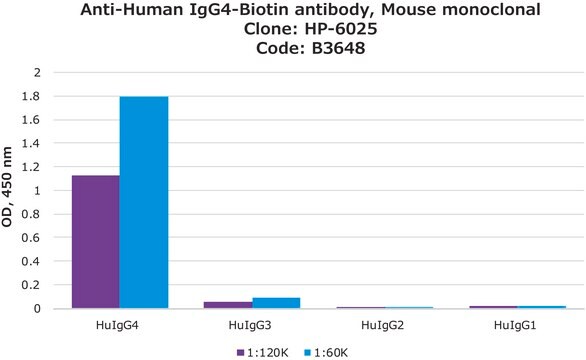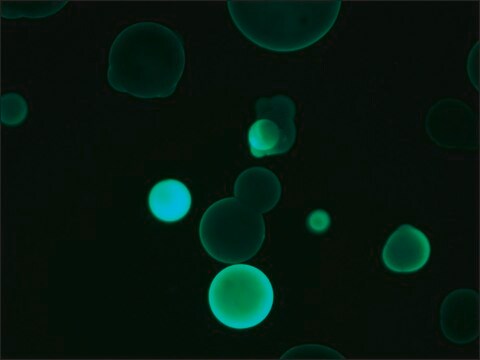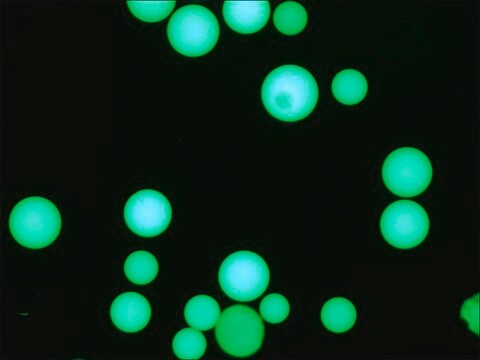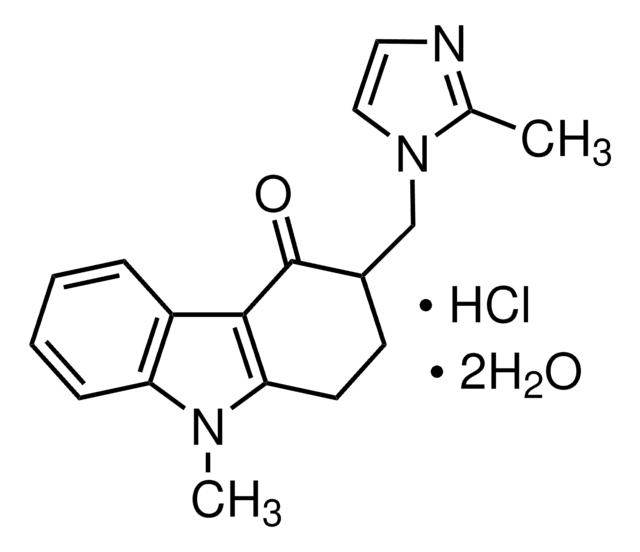F9890
Anti-Human IgG4−FITC antibody, Mouse monoclonal
clone HP-6025, purified from hybridoma cell culture
Sinónimos:
Monoclonal Anti-Human IgG4
About This Item
Productos recomendados
biological source
mouse
Quality Level
conjugate
FITC conjugate
antibody form
purified from hybridoma cell culture
antibody product type
secondary antibodies
clone
HP-6025, monoclonal
form
buffered aqueous solution
storage condition
protect from light
technique(s)
dot immunobinding: 1:64 using using a 4-8 μg dot of human IgG4
isotype
IgG1
shipped in
dry ice
storage temp.
−20°C
target post-translational modification
unmodified
¿Está buscando productos similares? Visita Guía de comparación de productos
General description
Specificity
Application
Biochem/physiol Actions
Physical form
Disclaimer
¿No encuentra el producto adecuado?
Pruebe nuestro Herramienta de selección de productos.
Storage Class
10 - Combustible liquids
wgk_germany
nwg
flash_point_f
Not applicable
flash_point_c
Not applicable
ppe
Eyeshields, Gloves, multi-purpose combination respirator cartridge (US)
Elija entre una de las versiones más recientes:
¿Ya tiene este producto?
Encuentre la documentación para los productos que ha comprado recientemente en la Biblioteca de documentos.
Nuestro equipo de científicos tiene experiencia en todas las áreas de investigación: Ciencias de la vida, Ciencia de los materiales, Síntesis química, Cromatografía, Analítica y muchas otras.
Póngase en contacto con el Servicio técnico